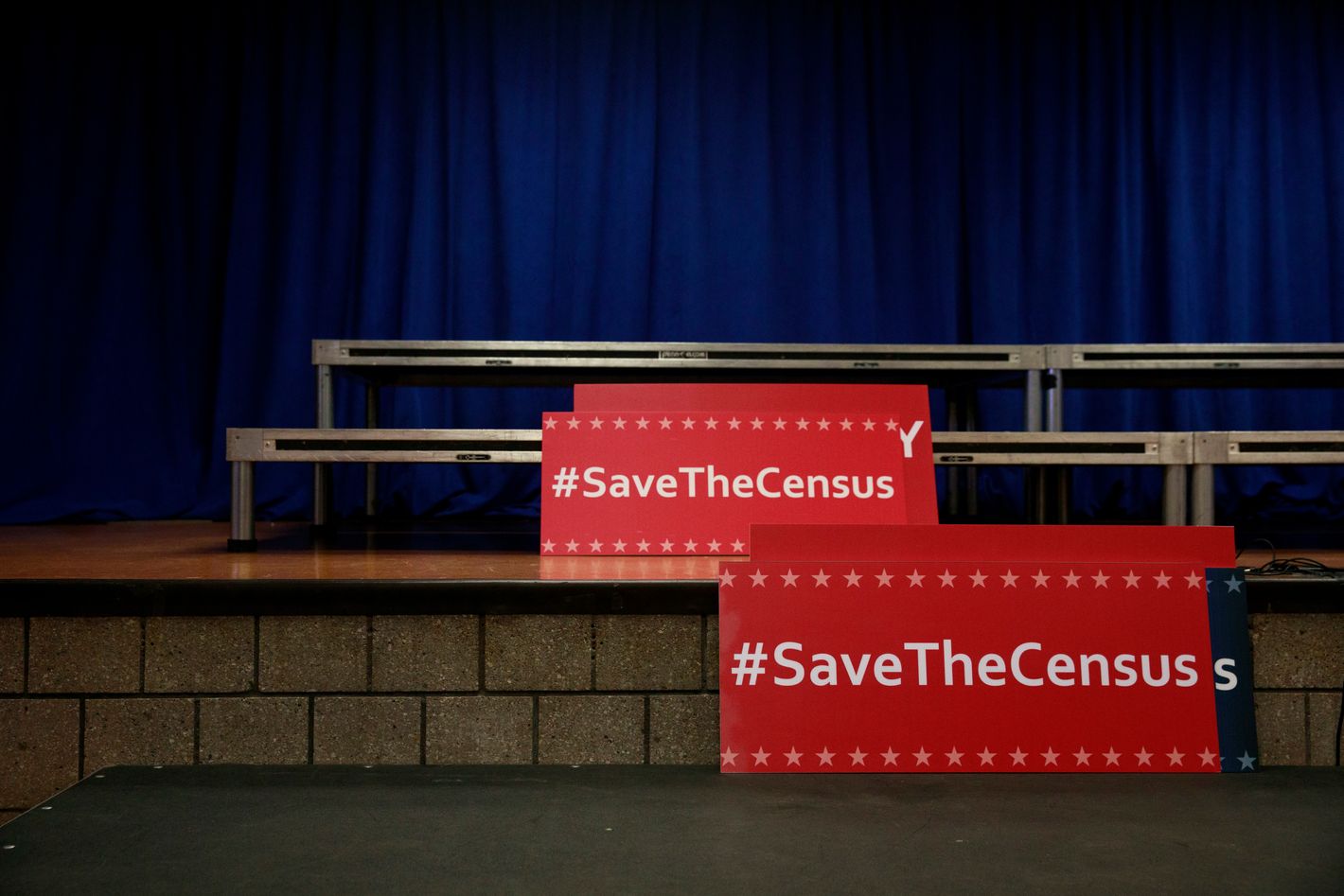 Photo: Drew Angerer/Getty Images
Photo: Drew Angerer/Getty Images
It’s probably not a coincidence that in the midst of Donald Trump’s twin crusades to track down and deport undocumented immigrants and gerrymander Texas to increase Republican representation in Congress, he dropped this bombshell on Truth Social:
I have instructed our Department of Commerce to immediately begin work on a new and highly accurate CENSUS based on modern day facts and figures and, importantly, using the results and information gained from the Presidential Election of 2024. People who are in our Country illegally WILL NOT BE COUNTED IN THE CENSUS. Thank you for your attention to this matter!
This order raises a lot of questions. Is Trump demanding a new, mid-decade revision of the last census, which took place in 2020? That’s a wild idea, but one that Marjorie Taylor Greene and Ron DeSantis have both raised in recent weeks. It’s unprecedented, almost certainly unconstitutional, and definitely something the administration could not pull off without a congressional authorization, which means Democrats could block it. An existing law says reapportionments of congressional seats just can’t happen other than once every ten years, and Republicans don’t have the power to change it.
But a demand to revise the last census would make some political sense. The spurious Republican argument is that the 2020 Census gave blue states too many U.S. House seats by counting undocumented immigrants, and overcounted the population in Democratic-controlled districts in blue and red states alike. Thus, the shaky reasoning goes, Republicans are justified in clawing back as many House seats as possible, as they are busily doing in Texas, with Missouri, Indiana, and Florida possibly following suit as Democrats frantically seek to counter them in California and elsewhere.
It’s also possible that Trump is talking about excluding undocumented immigrants from the next census in 2030. This is a golden oldie for Trump. In 2018, his Commerce secretary, Wilbur Ross, announced census takers would ask about citizenship, which would likely chill participation in the census in immigrant households, citizenship notwithstanding. In an incredibly complex 2019 decision, the Supreme Court told the first Trump administration that its rationale for a citizenship question was inadequate. But the Court left open the possibility that an argument for it could be revived in the future.
In the months before the end of his first term, Trump was still trying to skew census data for use in congressional reapportionment — without success. So perhaps he’s hoping that the current Supreme Court (in which Justice Amy Coney Barrett replaced the late Ruth Bader Ginsburg) will give him a green light to restrict the 2030 census.
But why would Trump care about a census that will take place well after he leaves office? His motivation for raising the issue now may be less about immediate political gains and more about simply reinforcing his ongoing crusade to deport undocumented immigrants and minimize their role in American life.
Refusing to count non-citizens directly violates the plain language of the 14th Amendment to the Constitution, which states, “Representatives shall be apportioned among the several States according to their respective numbers, counting the whole number of persons in each State.” But that means nothing to Trump, who is also challenging the 14th Amendment’s clear conferral of birthright citizenship on anyone born in this country.
Whether you view Trump’s census order as just a complement to his recent power grabs meant to give Republicans a midterms advantage, or as part of a longer scheme aimed at stigmatizing Democrats as the party of illegal immigration, it’s clear he’s claiming powers he just doesn’t possess. He wouldn’t be Donald Trump if he didn’t keep trying.
More on Politics
South Park Speaks Only for Itself‘Alligator Alcatraz’ Is Worse Than You RealizeMamdani Says Cuomo’s Call With Trump Is ‘Disqualifying’
From Intelligencer - Daily News, Politics, Business, and Tech via this RSS feed

